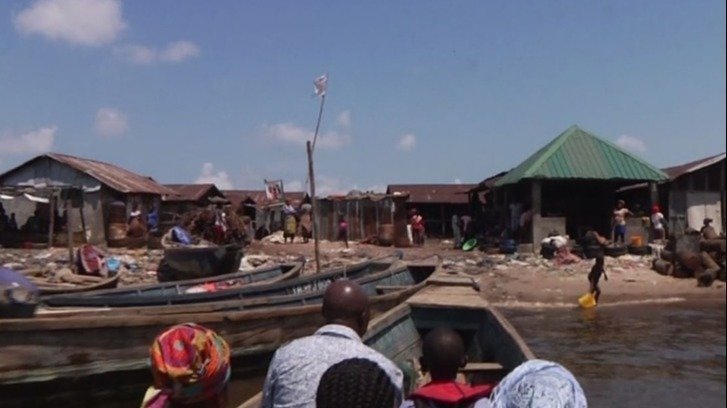Imagine going to the toilet once or twice daily knowing each time could end your life or leave you mortally wounded. Hard to imagine, right? Lucky you! But for some 10,000 fellow Nigerians in an underprivileged community in Lagos State, Nigeria’s commercial nerve centre, that is a real and present danger.
Itun Agan community is a century-old community presently under Amuwo Odofin Local Government Area of Lagos State. Separated from the Apapa Port by the Lagos Lagoon, this riverine community like many of its kind faces a grim economic future because of the threat posed by climate change and under-regulation of its primary economic activity, fishing.
However, that is not the focus of this piece. This sleepy community faces another existential threat of a more disastrous nature – open defecation.
A broken rib or a fractured leg is no joke and indeed not an experience any sensible person would love to have. But that is the potential price of defecating in Itun Agan.
Residents, whether old, pregnant or ill, have to climb wooden boats to be able to defecate openly inside the lagoon. When boats are regularly used for fishing activities, their surfaces become extremely slippery, making climbing a hazardous venture.
Those who cannot climb the boats defecate by the riverbank.
Either climbing a boat or defecating by the riverbank, open defecation in the full glare of everyone not only robs the doer of personal dignity and exposes them to the dangers of tripping and falling while climbing the boats, but it also assaults the innocent bystanders’ sight, generates offensive odour in the community, and poses a grave danger to the aquatic animals consuming human faeces day in, day out.
Some residents bear telltale signs of this walk of shame on the boats.
Open defecation in Nigeria
Open defecation is a major problem in Nigeria. According to findings from the 2021 WASH National Routine Mapping (WASHNORM) survey report, 47 million people in Nigeria practice open defecation. Three years prior, President Muhammadu Buhari declared a state of emergency in the Water, Sanitation, and Hygiene (WASH) sector by signing the Executive Order 009 titled: The Open Defecation – Free Nigeria by 2025 and other related matters.
The president also launched a national campaign tagged ‘Clean Nigeria: Use the Toilet‘ to formally kick-off the nation’s journey towards becoming open defecation-free (ODF) by 2025. The Director, Water Quality Control and Sanitation, Ministry of Water Resources, Emmanuel Awe, disclosed at a media parley in Abuja that the ministry had engaged 77,400 youth volunteers (100 per LGA) to act as hygiene ambassadors towards scaling up sanitation and hygiene in the country.
Lagos and the burden of proof
The Lagos State Government also says it has been working assiduously to make open defecation a thing of the past in the state. As part of activities to mark World Toilet Day on November 19, 2022, the state government reeled out its scorecard in this regard.
Praising the state government to the highest heavens, Permanent Secretary Office of Environmental Services, Dr. Tajudeen Gaji, stated that it has constructed over 167 public toilets in designated areas and registered over 635 public toilet operators as part of efforts to prevent open defecation.
Dr Gaji said, “The declaration (signed by Buhari) is expected to be followed by actions from each state to domesticate the Order and plan towards its application and sustenance to achieve Open Defecation Free status by 2025.
“Lagos State Governor, Mr. Babajide Sanwo–Olu took the lead role and set the pace for others to emulate by signing an Executive Order titled: Enforcement of Law and Order in Respect of Traffic and Sanitation Matters.
“The essence of the Executive Order is to restore stability and accountability to all citizens to become active stakeholders in bringing necessary changes to transform Lagos to the desired state…”
…back to Itun Agan
Itun Agan is barely a kilometre away from Nigeria’s premier port and federally-owned cash cow, Apapa Port. If such a strategically-placed community of 10,000 hardworking people cannot boast of a single public toilet, it is safe to assume that the Federal Government and Lagos have not shown enough seriousness to achieve the 2025 deadline.
In 2022, I launched a petition on change.org to help bring the issue to the front burner. Check here.
*John Ogunsemore is a Lagos-based journalist and social commentator. He can be reached via @SignorJohn on Twitter.



Leave a Reply